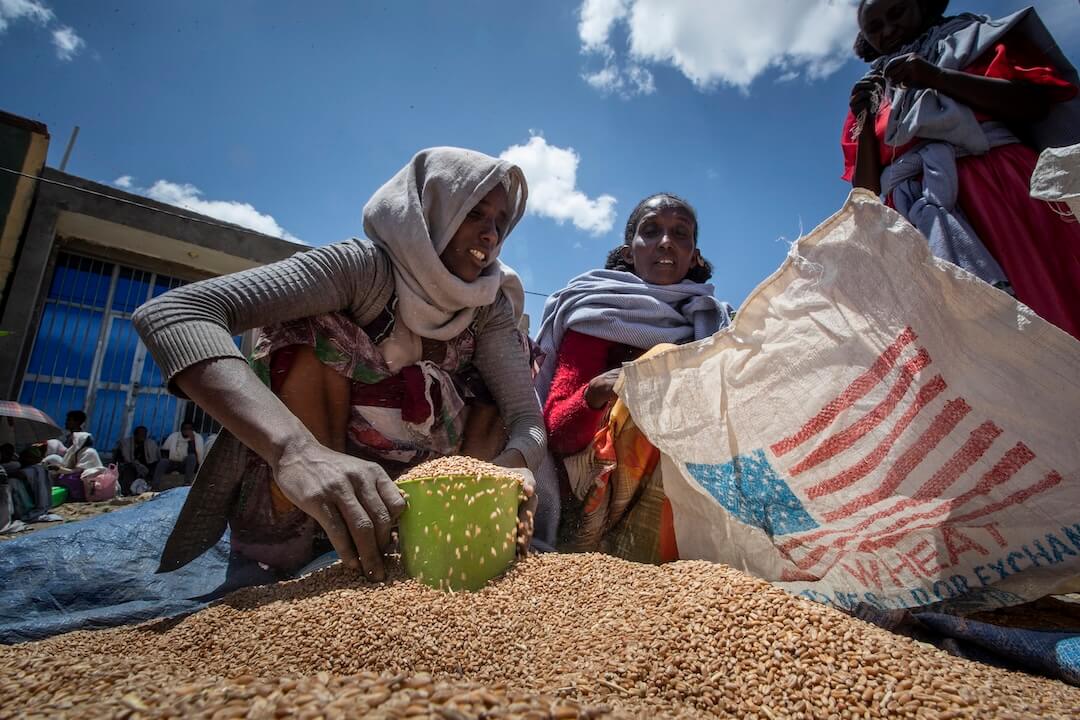The demand for fact-checks about the new coronavirus on WhatsApp already exceeds — by far — what was registered during electoral campaigns in Argentina, Brazil, Colombia, Spain, India and Turkey. Last week, the popular messaging app, owned by Facebook, reached out to the International Fact-Checking Network to explore ways to support fact-checkers.
With more than 1,000 requests for COVID-19 fact-checks per day, some of the organizations that are in the CoronaVirusFacts / DatosCoronaVirus alliance spent the last week analyzing ways to meet the gigantic demand for reliable information while caring for their own staffs.
This unprecedented demand created challenges for leaders of fact-checking organizations. They want to ensure a flow of reliable data and to serve their audiences. But they must also protect the mental health of their team members. Some of them chose to hire more people; others decided to quit disclosing their WhatsApp number.
“In the last elections, we received via WhatsApp an average of 600 requests per day and about 900 requests on peak days. Now, we receive between 1,500 and 2,000 per day,” said Clara Jiménez Cruz, co-founder and director of Maldita.es in Spain.
Joaquín Ortega, content director of Newtral.es, confirmed the scenario: “Our verification service via WhatsApp now receives six times more messages than in the last elections. The situation is very alarming and unusual. The COVID-19 infodemic has filled our WhatsApp service with questions about false remedies, manipulated official documents and a huge amount of audios with all kinds of disinformation.”
Among the almost 200 falsehoods that these two platforms had published until Monday in the CoronaVirusFacts / DatosCoronaVirus alliance, 80 (40 percent) of them had come from the messaging app. Both fact-checkers say this number will go up.
On the other side of the Atlantic, the demand for fact-checks via WhatsApp has also grown enormously in recent days.
Between March 18 and 25, Aos Fatos, in Brazil, received nearly 1,550 fact-check requests in its WhatsApp account.
“This represents seven times more than what we usually see in a ‘normal’ week,” said Tai Nalon, the organization’s executive director. “And we are not actively disclosing our number because our operation is manual. And encouraging the use of WhatsApp to clarify doubts, at this moment, could collapse all our communications.”
Chequeado, in Argentina, has been feeling the same pressure since President Alberto Fernández established a compulsory social-distancing period.
“Since that, Chequeado has received 70 percent more fact-check requests per day via WhatsApp than its average,” said Matías Di Sanctis, the newsroom’s coordinator. “This means a daily average that is higher than what we registered during the electoral months of 2019 (August and October of that year).”
Di Sanctis said that the majority of requests concern viral chain messages about preventative measures and audios from fake doctors quoting health authorities. His team is also dealing with many false projections on the number of infected people in Argentina.
Before COVID-19, the team at Colombiacheck received an average of 10 requests per day on WhatsApp. On March 15, however, the Colombian fact-checking organization registered, in a single day, 30 demands. It is a volume that far exceeds that observed in the 2019 elections, said Pablo Medina Uribe, the director.
In India and Turkey, where WhatsApp is a popular communications tool, the reality is similar. Mehmet Atakan Foça, the founder of Teyit, said that the Turkish organization has this month received 7,500 fact-check requests through its social networks, which represents three times more than in February.
Rahul Namboori, director of FactCrescendo in India, said that the volume of false news and fact-check requests in the app is so great that even the Indian Army had to release statements on social media channels asking people not to believe or share WhatsApp rumors.
Last week, the platform gave the International Fact-Checking Network a $1 million to support overwhelmed fact-checkers. Since January, the IFCN has coordinated the CoronaVirusFacts / DatosCoronaVirus alliance and, on Monday, the network held two e-meetings with fact-checkers to collect information regarding their needs and priorities.
“We’re encouraged by the growing interest users have in checking the facts about information they have received. The $1million grant WhatsApp recently provided to IFCN is designed to speed the ability of fact-checking organizations to build tools and processes to manage the information they receive from local communities. In particular, the WhatsApp Business App and the Business API bring additional capabilities to sort and auto-respond to user requests,” said WhatsApp’s public policy manager, Ben Supple
He also informed that WhatsApp is working on a search feature that would allow users to quickly comb through the web with the text or video they receive for more context.
”This featuring is currently in testing, and we look forward to rolling it out in the near future,” said Supple.
Read the Spanish version at Univision.
Read the reports published by the #CoronaVirusFacts Alliance
- Report # 1 (published Jan. 28): Coronavirus: Fact-checkers from 30 countries are fighting 3 waves of misinformation
- Report # 2 (published Jan. 30): Photos and videos allegedly showing the coronavirus are now challenging fact-checkers
- Report # 3 (published Feb. 3): Panic and fear might be limiting human reasoning and fueling hoaxes about coronavirus
- Report # 4 (published Feb. 6): Google, Facebook and Twitter could do more to surface fact-checks about the coronavirus
- Report # 5 (published Feb. 13): These are false cures and fake preventative measures against coronavirus. Help fact-checkers spread the word
- Report # 6 (published Feb. 20): Hoaxes about the coronavirus are now trying to prove human extermination
- Report # 7 (published Feb. 27): No race or religion can prevent coronavirus — don’t fall for these hoaxes
- Report # 8 (published Mar. 5): False cases of coronavirus have infected social media
- Report #9 (published Mar. 12): Hoaxes about coronavirus tests have political uses and can push patients away
- Report #10 (published Mar. 19): Once a false lock-down, cancellation or closing gets posted, it’s hard to convince people that it’s not true
Cristina Tardáguila is the associate director of the International Fact-Checking Network and the founder of Agência Lupa. She can be reached at ctardaguila@poynter.org.
Coronavirus collaboration: The collaborative project, coordinated by the International Fact-Checking Network, was launched Jan. 24 and will be active for as long as the lethal disease spreads worldwide. Fact-checkers are using a shared Google Sheet and a Slack channel to share content and communicate in different time zones. Follow #CoronaVirusFacts and #DatosCoronaVirus on social media for the latest updates.







